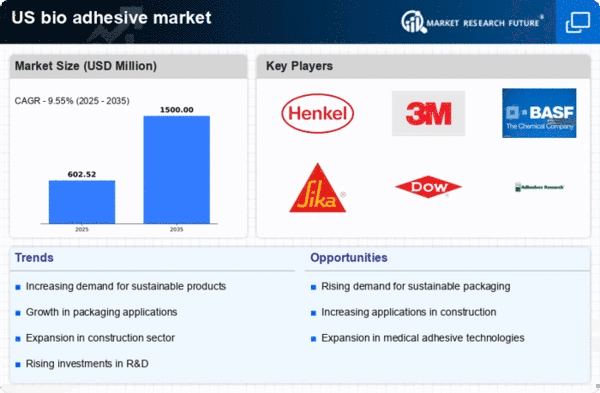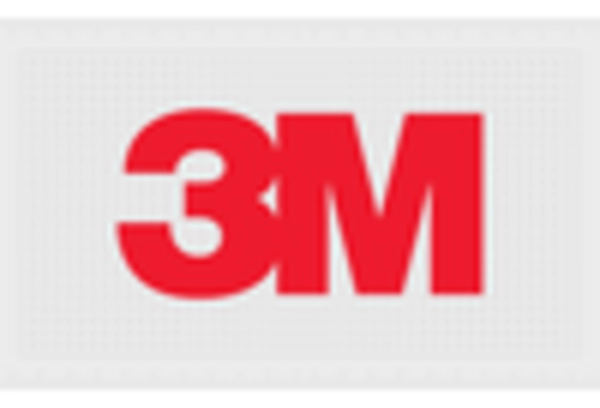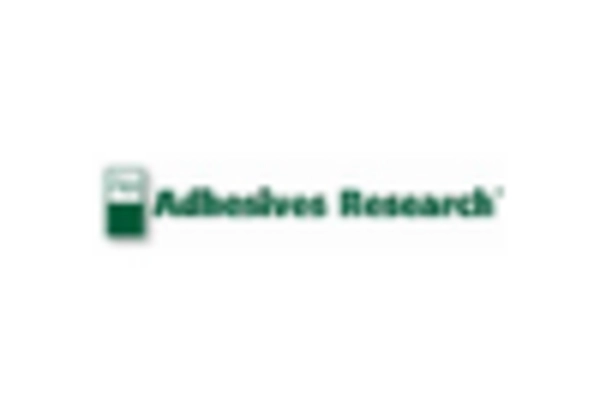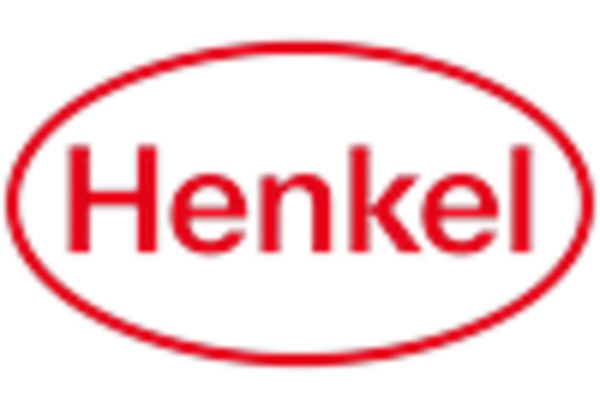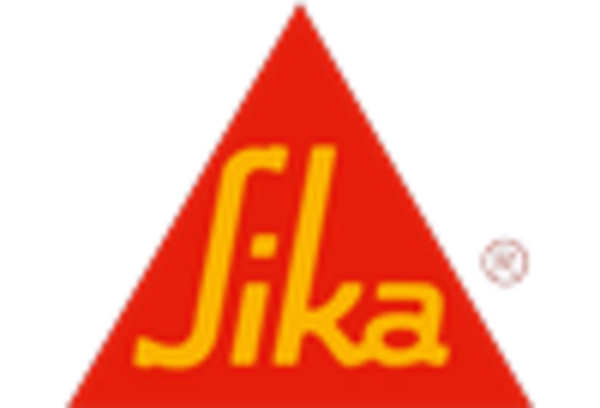Growth in the Construction Sector
The growth in the construction sector is a significant driver for the bio adhesive market. As the construction industry increasingly adopts sustainable building practices, the demand for eco-friendly adhesives is on the rise. In 2025, the construction sector is expected to contribute substantially to the bio adhesive market, with projections indicating a market value of over $500 million. This growth is attributed to the increasing use of bio adhesives in applications such as flooring, wall panels, and insulation materials. The trend towards green building certifications further propels the adoption of bio-based adhesives, as builders seek materials that comply with sustainability standards, thereby enhancing the overall market potential.
Innovations in Bio-Based Raw Materials
Innovations in bio-based raw materials are playing a crucial role in shaping the bio adhesive market. The development of new sources, such as plant-based polymers and natural resins, enhances the performance and applicability of bio adhesives across various sectors. For instance, advancements in the extraction and processing of these materials have led to adhesives that not only meet performance standards but also reduce environmental impact. The bio adhesive market is projected to grow as manufacturers invest in research and development to create high-performance products from renewable resources. This focus on innovation suggests that the market could see a diversification of product offerings, catering to specific industry needs while promoting sustainability.
Rising Demand for Eco-Friendly Products
The bio adhesive market is experiencing a notable surge in demand for eco-friendly products, driven by increasing consumer awareness regarding environmental sustainability. As more industries, including packaging, construction, and automotive, seek alternatives to synthetic adhesives, the bio adhesive market is positioned to benefit significantly. In 2025, the market is projected to reach approximately $1.5 billion, reflecting a compound annual growth rate (CAGR) of around 10%. This shift towards sustainable materials is not merely a trend but appears to be a fundamental change in consumer preferences, indicating a long-term growth trajectory for the bio adhesive market. Companies that prioritize eco-friendly formulations are likely to capture a larger share of the market, as consumers increasingly favor products that align with their values.
Consumer Preference for Healthier Alternatives
Consumer preference for healthier alternatives is reshaping the bio adhesive market. As awareness of the potential health risks associated with synthetic adhesives grows, consumers are increasingly seeking products that are safer for both human health and the environment. This shift is particularly evident in sectors such as food packaging and medical applications, where the demand for non-toxic, bio-based adhesives is rising. The bio adhesive market is likely to benefit from this trend, as manufacturers respond by developing products that meet stringent health and safety standards. This consumer-driven demand for healthier alternatives not only supports market growth but also encourages innovation in the formulation of bio adhesives.
Increased Regulatory Support for Sustainable Practices
Increased regulatory support for sustainable practices is significantly influencing the bio adhesive market. Government initiatives aimed at reducing carbon footprints and promoting the use of renewable resources are creating a favorable environment for bio adhesive manufacturers. Policies that encourage the adoption of bio-based materials in construction, packaging, and other industries are likely to drive market growth. For example, regulations mandating the reduction of volatile organic compounds (VOCs) in adhesives are pushing companies to explore bio-based alternatives. This regulatory landscape not only supports the bio adhesive market but also incentivizes innovation, as companies strive to comply with evolving standards while meeting consumer demand for greener products.
.png)

